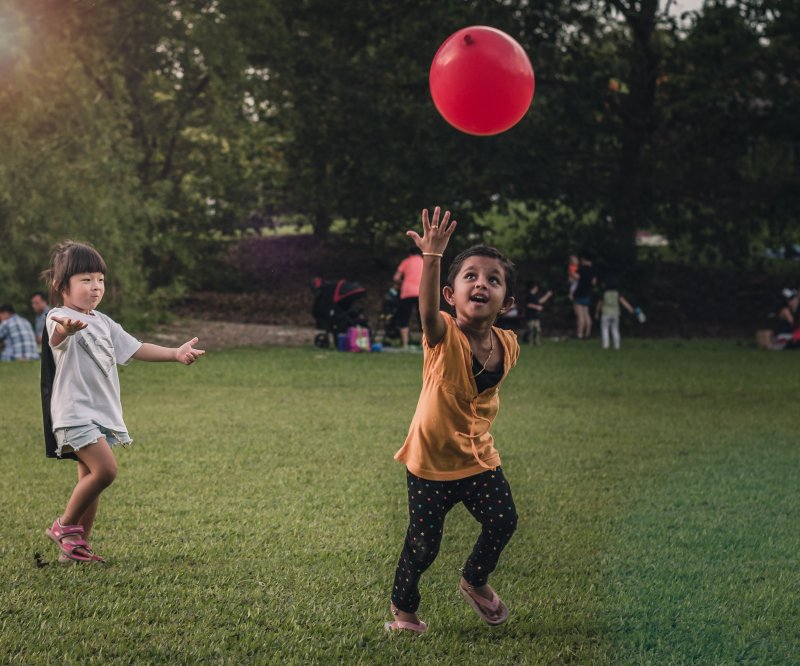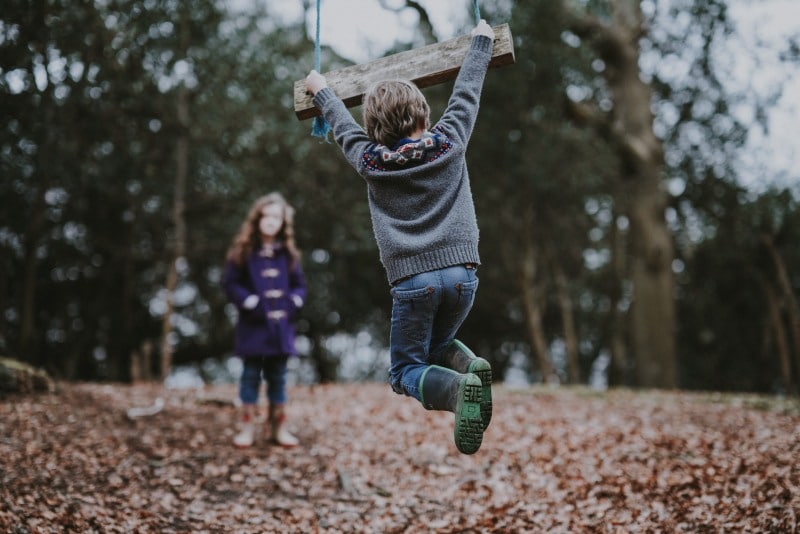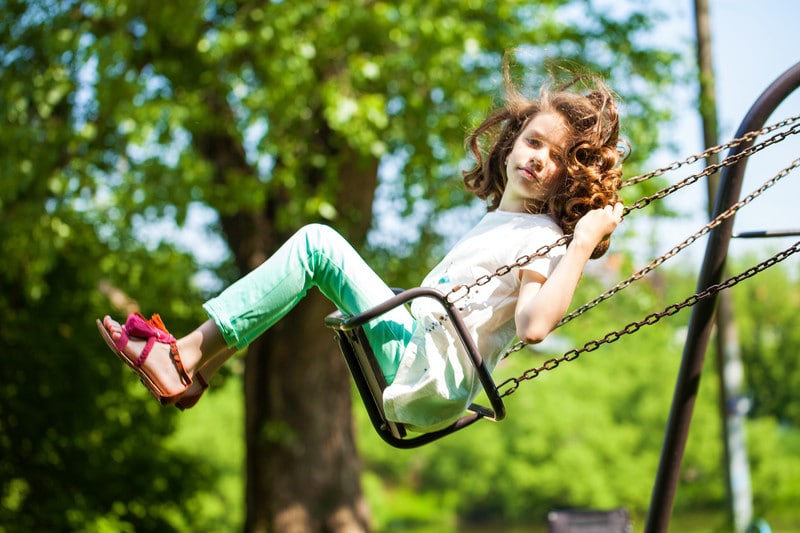As parents, educators and leaders, we want to prepare kids to thrive in a world that moves fast. They’ll need resilience, grit and agility to handle the unpredictable curves ahead. And the kids who spend as much time as possible out in nature may get a leg up on future success.
How Outdoor Play Helps Kids Grow Strong
There’s a large and growing body of research suggesting that kids who play in the green outdoors have better physical, mental and social abilities than those who get little chance to do so.
Nature improves mental health.
Natural surroundings lift mood and reduce stress, which helps kids’ mental well-being. A recent study of over 900,000 Swedish children reveals those with the most access to green space had a lower risk of developing a psychological disorder. And other research found that just 90 minutes in a natural setting can decrease activity in a region of the brain associated with depression.
Outside play also gives kids the chance to pretend and craft their own adventures, which helps them deal with fearful or stressful circumstances in real life. On the playground, they can occupy a world in which they control. They can slay dragons, heal the wounded or capture pirates. Nothing is too scary to overcome. Being the hero in their own productions gives kids the confidence to face the real world with less anxiety.
Natural settings can improve symptoms of ADHD, as well. Kids who get even a 20-minute break in a park or playground have better attention, less mental fatigue and less irritability. These benefits persist over time if kids get regular outdoor play breaks.
Finally, kids playing together also develop important social skills. They make friends, learn to communicate ideas, share with others and resolve conflicts. These abilities will help them develop a strong support network as adults, which lowers stress, boosts overall happiness and increases the likelihood of success.

Photo by Alaric Sim on Unsplash
Nature revs up creativity and cognitive function.
Kids who spend time in nature tend to perform better in school and develop more creativity. The unstructured natural world stimulates imagination and curiosity.
When kids are playing alone or with friends, they’re constantly making decisions about what to do next, how to climb a fort or what materials they need for a sandbox castle. Solving these fun puzzles helps build reasoning and decision-making skills.
Natural sights and sounds offer kids’ imaginations a blank slate on which to paint any story they like. A pinecone becomes a secret treasure, and a tree morphs into the enemy hideout. Kids learn to think laterally and see new possibilities in the objects around them, which develops their creativity.
Nature encourages activity and fitness.
In the United States, 18.5% of children between 2 and 19 are obese. But indoor play isn’t enough to get kids more active. A recent study in the UK found that children are 2 to 3 times more physically active when playing outdoors than when inside.
They move more and play longer at an outdoor playground. And unstructured play burns as many calories as sports programs.
Outdoor play also enhances gross motor skills and coordination. Kids are throwing, catching running, climbing, balancing and jumping. They’re building muscle strength, flexibility and self-confidence while learning what their bodies can do.
How Much Time Kids Typically Spend Playing Outdoors
Despite the significant advantages of communing with nature, American kids spend just 4 to 7 minutes on average in unstructured outdoor play. Instead, they allocate almost all their time to a range of organized activities like school or sports and devote a whopping 7 hours a day to computers, video games or television.
Experts recommend between 2 and 3 hours of outdoor play per day, so it’s clear kids aren’t getting enough.

Photo by Annie Spratt on Unsplash
How to Encourage More Outdoor Play
Parents, schools, churches and community leaders can help kids get up and out by creating spaces for them to play. Take a look at your neighborhood. Local playgrounds may need repairs or if they’re small, they may need additional land or equipment. Ask how you can help schools and municipalities open up more green space.
For playgrounds with little greenery, volunteer groups can plant trees and shrubs to improve natural settings and attract birds and other wildlife. Kids can also take part in the development and improvement of play areas in their neighborhoods, which will help them develop a sense of ownership and pride in what they’ve accomplished.
Parents and teachers can encourage outdoor play by joining in with the kids. Here are a few ideas:
- Have a picnic
- Host a nature treasure hunt for interesting bugs and plants
- Draw pictures of natural scenery
- Keep a photo journal of the changes in seasons
- Act out an epic adventure story
- Play catch, 4-square, duck-duck-goose, hide-and-seek or basketball
- Hold a playground Olympics
- Visit at night and gaze at the stars
Adults can also help kids turn outdoor time into a lifelong healthy habit by leaving electronic devices at home and making outdoor unstructured play time a priority. If kids’ have organized activites from dawn till dusk, try swapping one out for free play.
The National Wildlife Federation has a Green Hour program which helps families, schools, towns, childcare centers and other community groups set the goal of giving kids an hour each day to play outdoors in nature. They offer advice on how to get started and how to interest children in the outdoors.
It may take some persuasion and crafty scheduling to get your kids out on the playground, but the effort is worth it. Even as we insulate our lives from nature, we’re learning how important it is for everyone to appreciate a verdant landscape from time to time. And for kids, growing up in nature is more than fun and games; it could set them on the path to eventual success.
